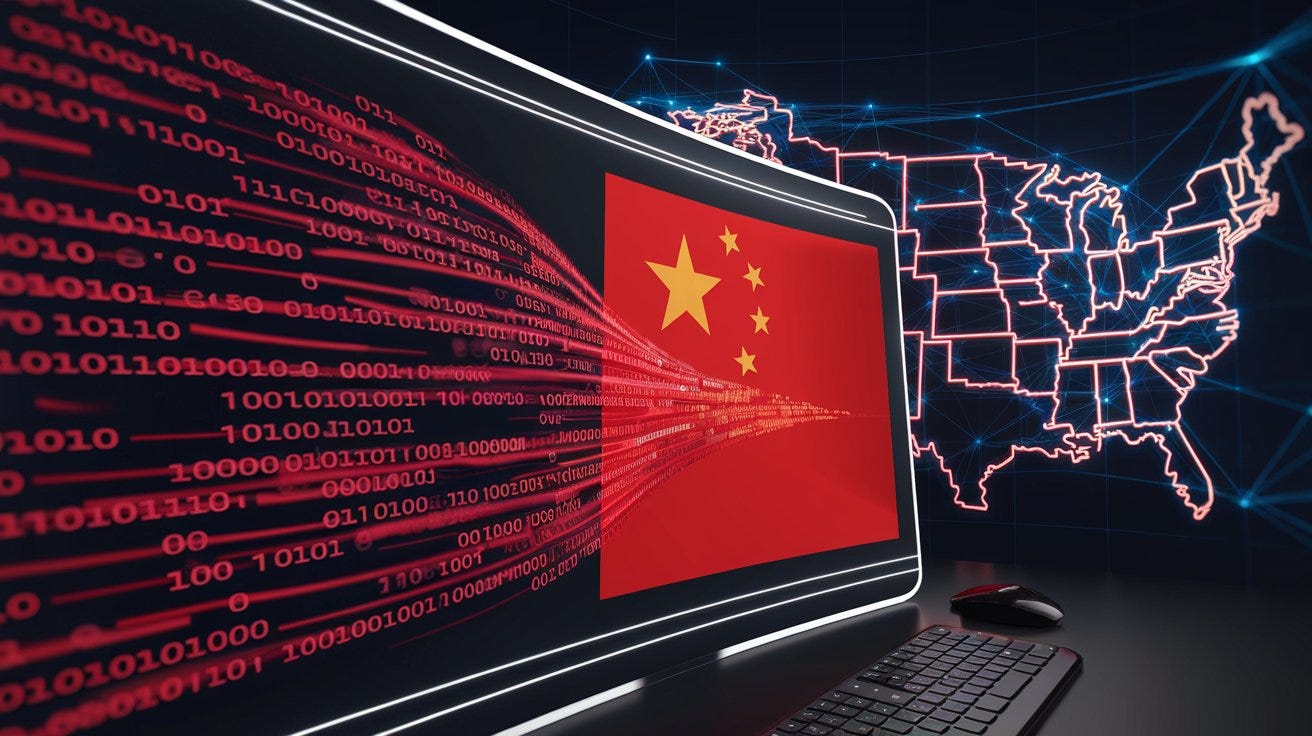'National Security'
Google and OpenAI make the case to the government that they should be able to train on whatever data they want.
When Big Tech is accused of shall we say sketchy behavior, you can bet the farm that China is going to be invoked at some point. That was definitely the case last week when OpenAI and Google both pointed to China's ambitions to be a world leader in AI as the reason they should be allowed to train their large language models on copyrighted works.
The scary part: they might have a point. More on that in a minute, but first I'm thrilled to be launching the second cohort of AI for PR & Media Professionals today. The first one was a tremendous success, and I'm looking forward to riding that momentum over the next six weeks of classes that go over how to apply AI to campaign management, data analysis, and media training. If you're interested, there's still a few hours to join. Details below 👇
A MESSAGE FROM THE MEDIA COPILOT & THE UPGRADE
Last Chance! Leverage AI and Stay Ahead in PR
Generative AI is now essential for PR professionals. That's not me saying it — it's according Muck Rack's State of AI in PR report for 2025, which debuted just this week. The report reveals 75% of PR professionals are now using generative AI, with 93% saying it speeds up their work. Yet, only 38% of companies have policies guiding AI usage.
💡 AI for PR & Media Professionals
The guidance you need is here: a six-week live online course starting TODAY, March 18, designed to give PR pros, media strategists, and content creators the edge they need in an AI-driven landscape.
What You’ll Learn:
AI-Enhanced Content Creation: Automate press releases, refine pitches, and master audience insights.
Time-Saving Workflow Automations: Automate repetitive tasks to free up time for strategic decision-making.
Campaign Optimization: Use AI analytics to measure ROI and strategize for success.
🎓 Taught by Industry Leaders
Join Pete Pachal (Founder, The Media Copilot), Peter Bittner (Lecturer, UC Berkeley) and Kris Krüg (AI consultant for creatives) for expert guidance, personalized coaching, and insights into the tools shaping the future of PR.
The copyright war just became an AI cold war
When the Trump administration nullified the previous administration's executive order on AI and issued its own, the first phase was a period of public input. That input included detailed memos from some of the biggest companies in AI, including OpenAI and Google. As you'd expect, the two companies adopted a stance that made the case for increased investment and a pro-innovation regulatory framework. They also took on the issue of copyright directly.
Both companies defended the training of AI models on publicly available data—that is, information that is published on the open web. It isn't a shock that they'd defend something that has become a standard part of their business practice, but the executive order gives them an opportunity to advance a specific part of the argument: national security.
AI is many things: a paradigm-shifting technology, an existential crisis for media companies, and a great way to find out how long to boil beans. It's also an arms race. The U.S. is desperate to become the world leader in AI if only to ensure China does not. And the emergence of DeepSeek earlier this year got everyone thinking the race is much closer than it appeared to be.
OpenAI specifically cited China's rapid advancement in AI as a factor, if not the factor, in why U.S. labs should have the legal right to train on copyrighted works without the explicit permission of rights holders. Requiring U.S. AI companies to license the content they ingest would effectively coronate China as Earth's AI ruler, they say, because Chinese companies have already shown they will train on publicly available data regardless of what the rules are.
How DeepSeek made everything more urgent
That much is true: Even if we didn't have the evidence of DeepSeek (which appears to have been trained on ChatGPT outputs), China has historically shown it's willing to ignore intellectual property rights to gain a competitive advantage. Regardless of what the law may say in America or other parts of the world, it seems certain that China will simply skirt those laws when it comes to building its own models.
Does that justify America shaping its laws to allow AI companies to train on everybody's data? Many content creators don't think so. I'm also fairly certain the argument—which the major labs have been making in some form for a while—hasn't inspired many (or any) artists, authors, or media companies to drop their copyright lawsuits against OpenAI.
Keep reading with a 7-day free trial
Subscribe to The Media Copilot to keep reading this post and get 7 days of free access to the full post archives.





